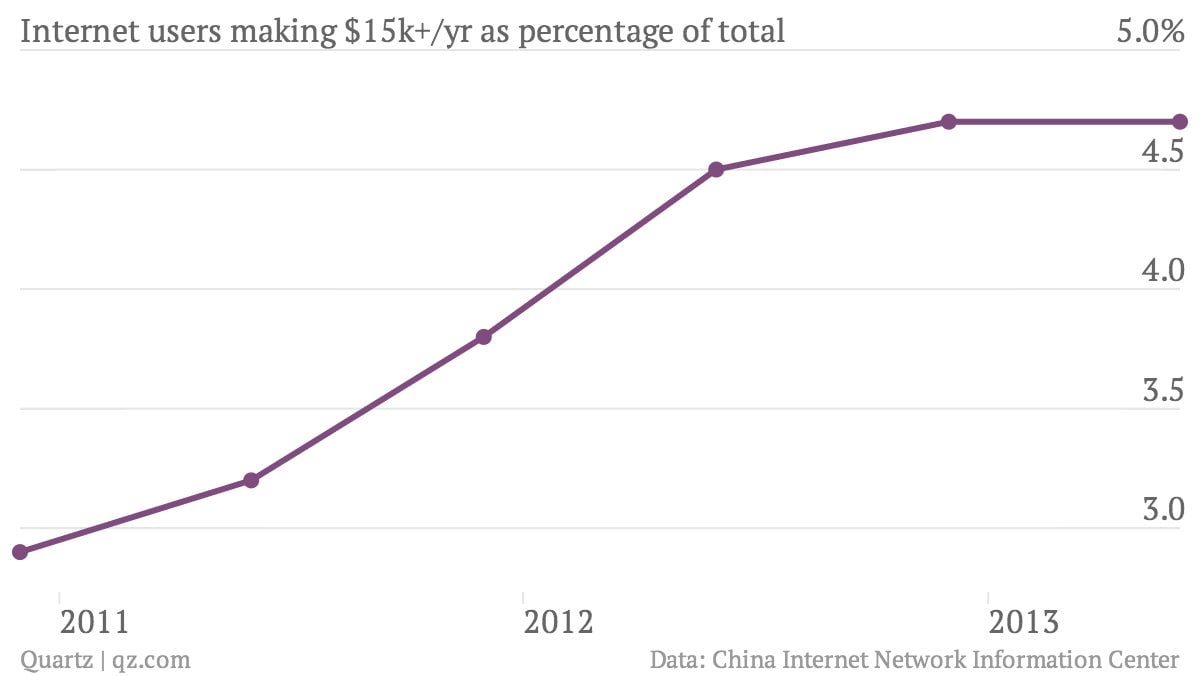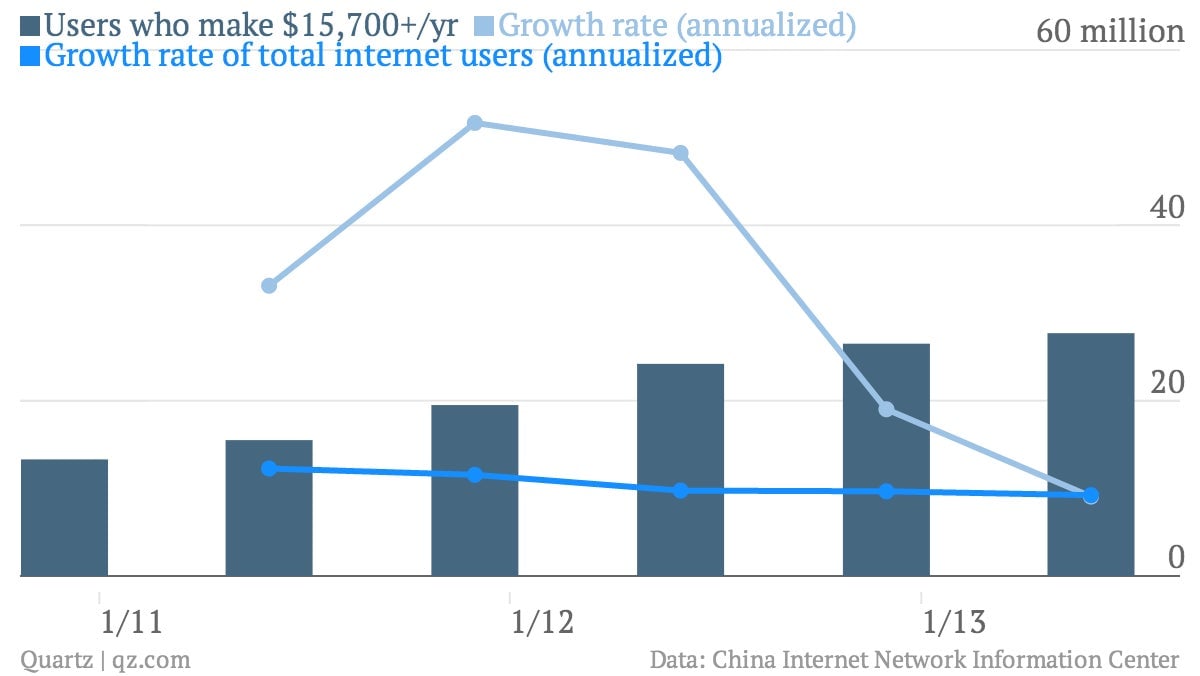China’s internet population is not getting rich as quickly as it used to
Between December of 2012 and June of 2013, 26 million people—about the population of Nepal—started using the internet on a regular basis in China, according to China Internet Network Information Center’s latest semi-annual report (pdf). That brings China’s total internet-using population to 564 million. And for the last few years, that number’s been rising at a rate of more than 9% each year.


Between December of 2012 and June of 2013, 26 million people—about the population of Nepal—started using the internet on a regular basis in China, according to China Internet Network Information Center’s latest semi-annual report (pdf). That brings China’s total internet-using population to 564 million. And for the last few years, that number’s been rising at a rate of more than 9% each year.
This might sound like good news to those hailing China’s e-commerce revolution—big numbers, consistent growth. But this latest report shows a more troubling trend. In previous years, the share of internet users making more than about $15,000 a year—the top wealth bracket in the survey—had been ticking up. But between the end of 2012 and mid-2013, it stopped, instead staying at 4.7% of the total internet using population for a year now:

Mind you, the raw numbers are still growing. As of June, some 27.7 million regular internet users made more than $15,000 a year, up from 26.5 million last December. But that growth rate used to be in the 30-50% range, on an annualized basis. Now it’s growing at 9.0% annualized. That’s now slightly slower than the growth of the overall user base, at 9.2%:

What’s going on? The latest official data show income among city-dwellers averaging only $4,630 a year (link in Chinese), but incomes on average are also rising relatively rapidly—at about 6.5% on the previous year in urban areas. That alone should be steadily bumping existing internet users into the $15,000-and-up category.
So why is the growth rate slowing so sharply? A report in the Legal Evening Paper chalks this up to workplace demands on high-salary earners (link in Chinese). “For the group that earns high incomes, the working hours are usually long, the pressure is great, and they basically have no time to be surfing the internet,” an analyst told the paper. “At the same time, people with high incomes pay more attention to quality of life, and when they have free time they wouldn’t likely choose to sit at home using the internet, and would more likely be traveling and such.”
That may be so, but we suspect that a bigger reason for tapering growth in internet usage among $15,000-and-up income earners is the addition of more users at the lower end of the salary spectrum. The upper end, meanwhile, has hit saturation point. It also could be that wage increases on the upper end of the salary spectrum are slowing more rapidly than wage increases overall, though there are too many other factors at play to say that conclusively.
A word to the wise for Chinese internet and e-commerce companies: Future growth in China’s e-commerce sector won’t be driven by the nouveau riche, but by people with meager incomes.